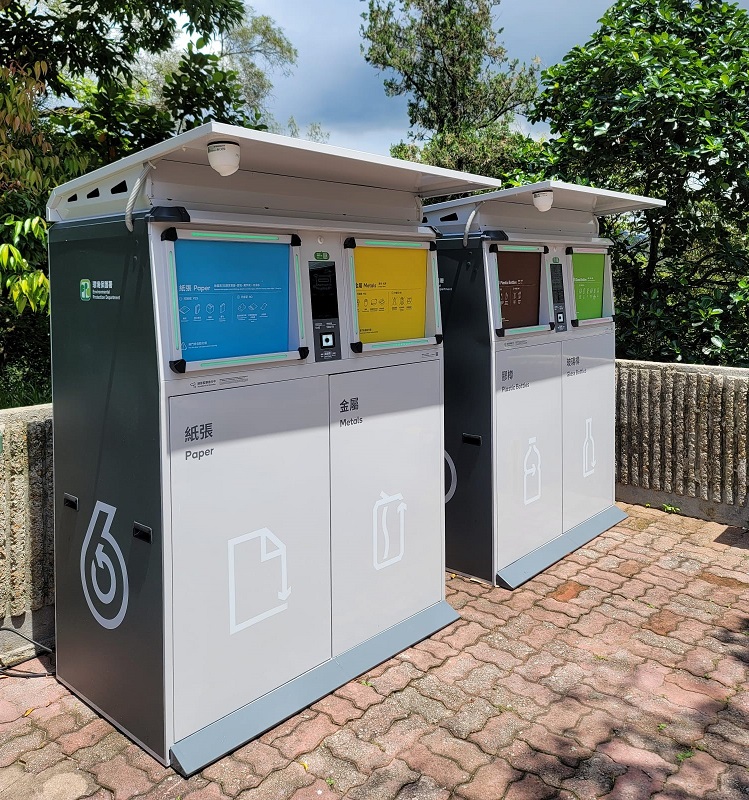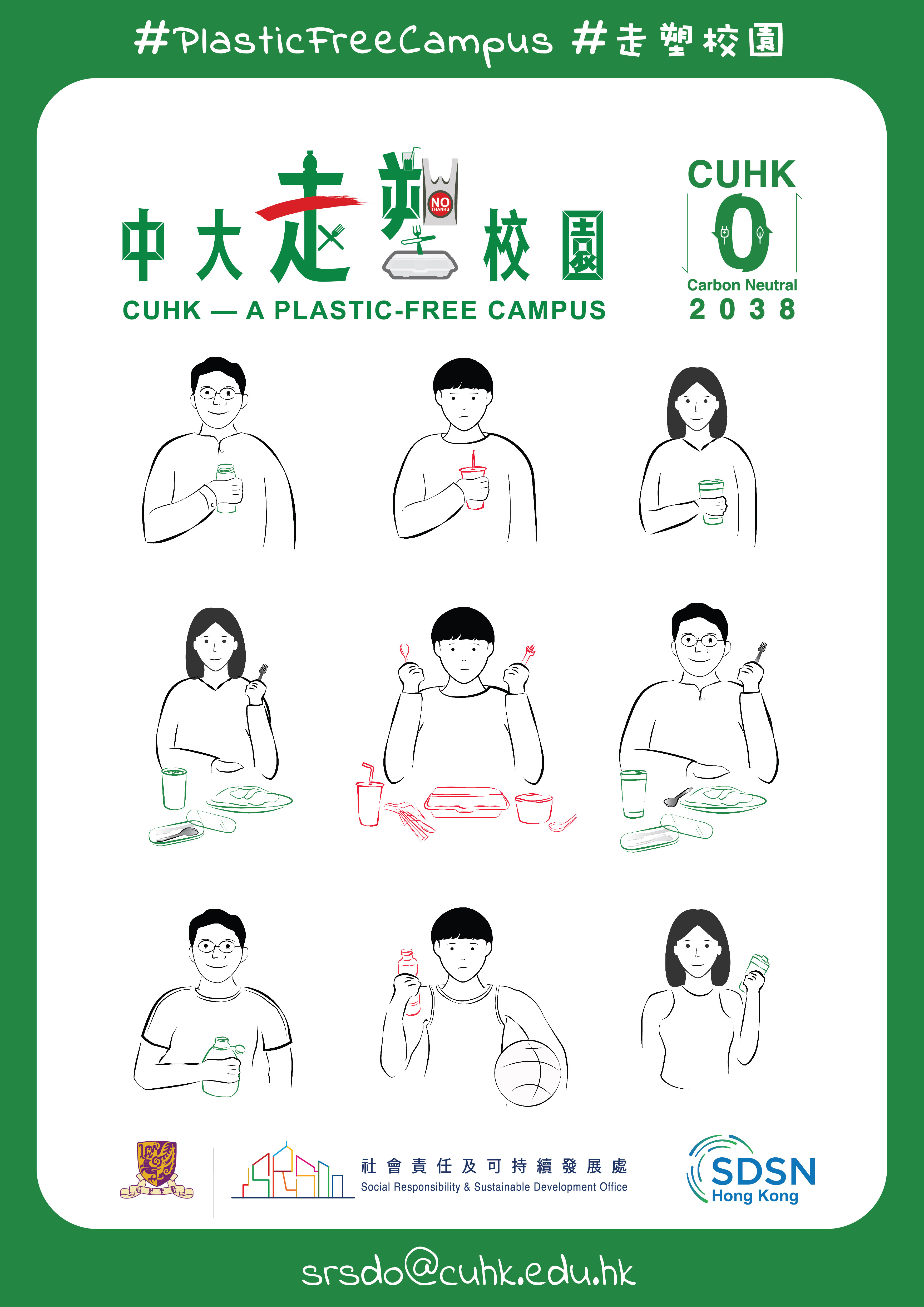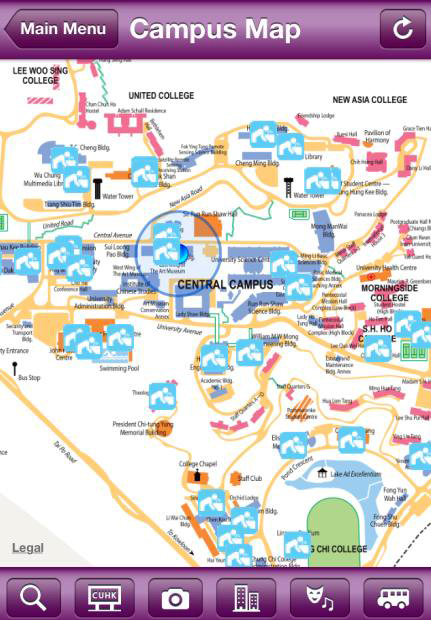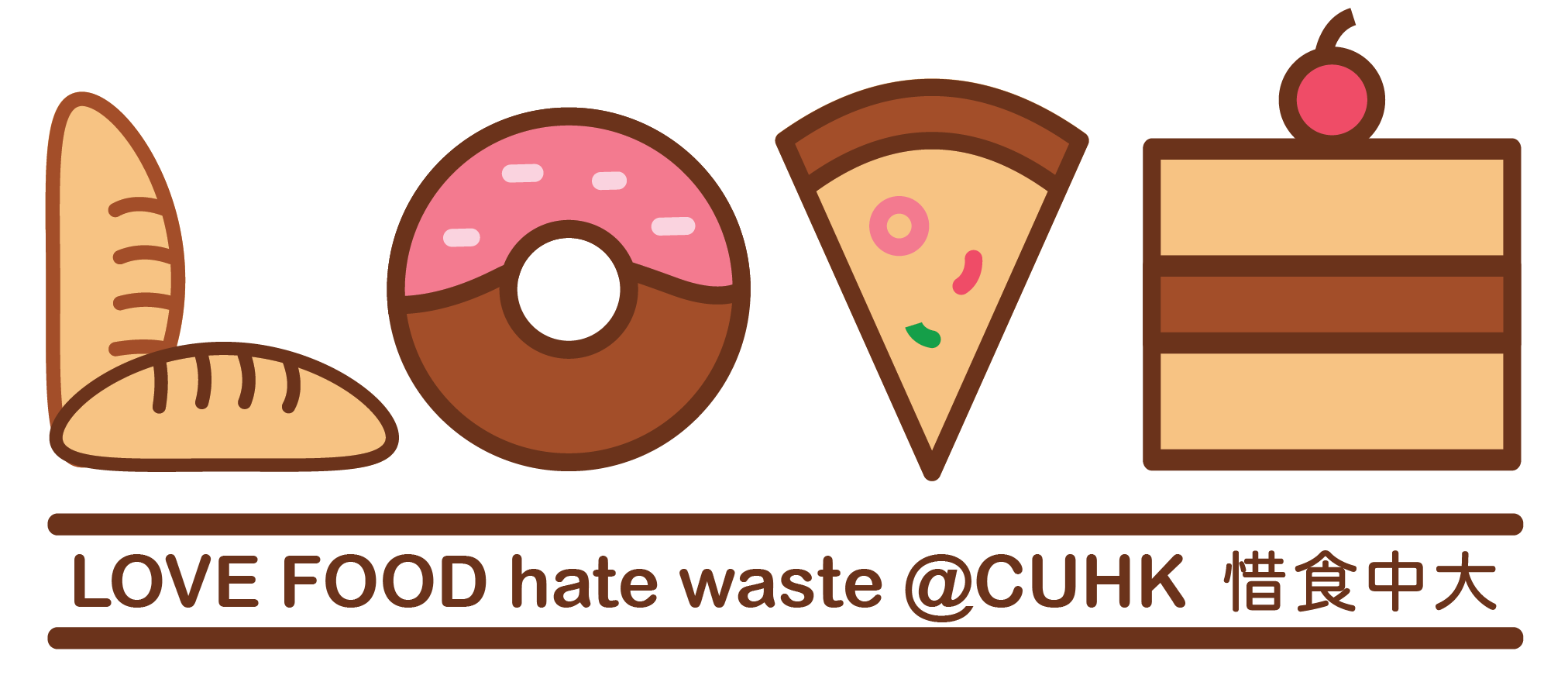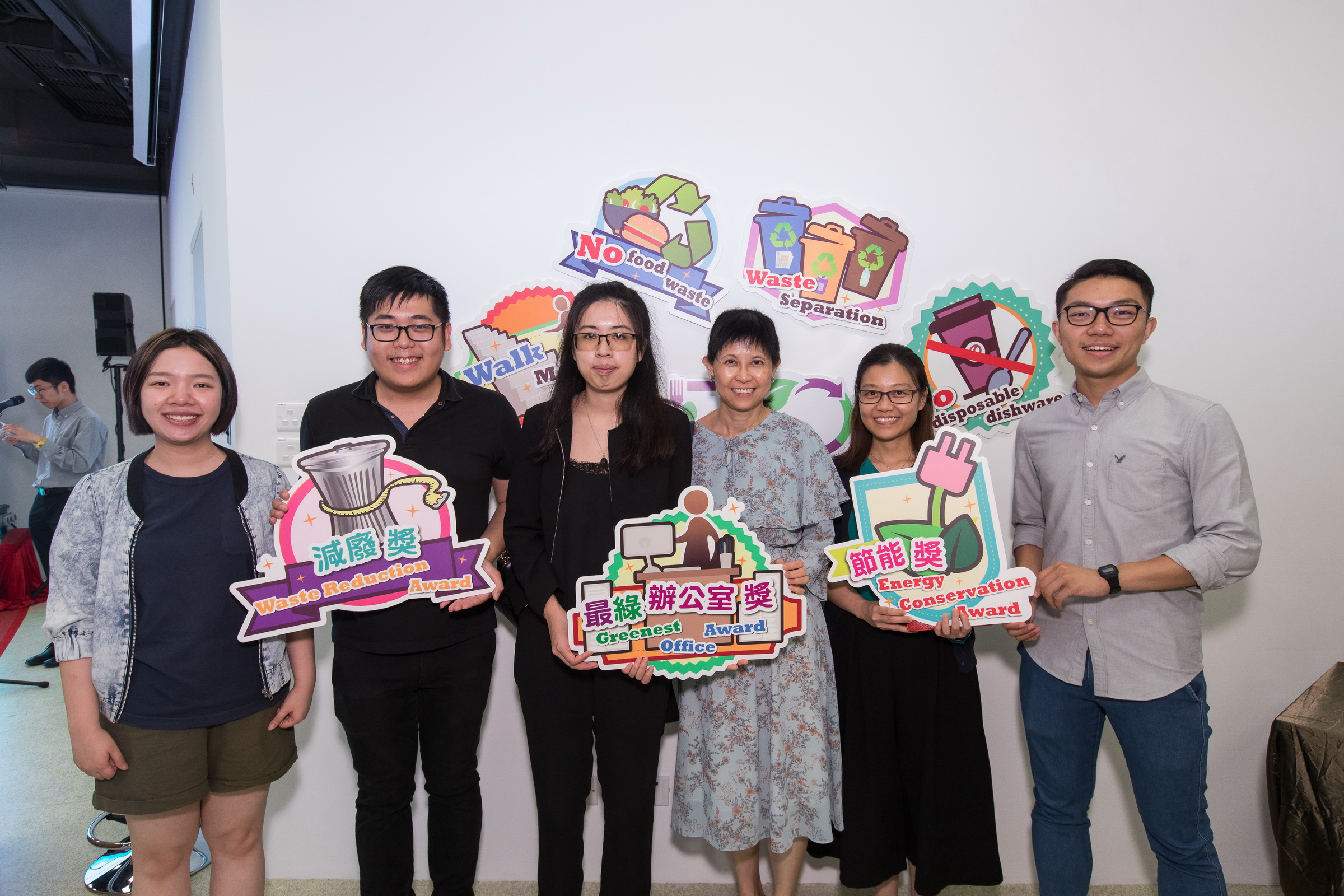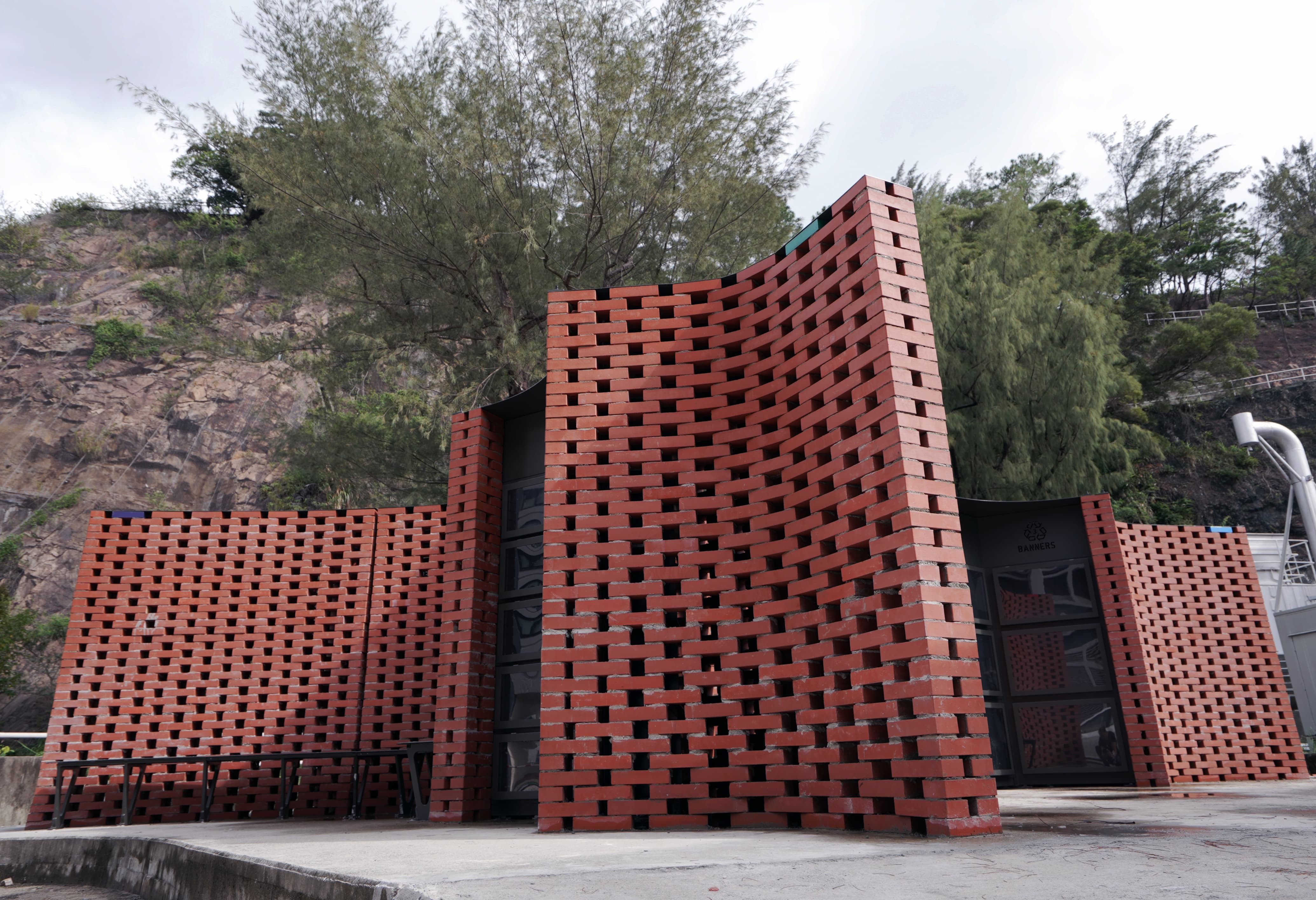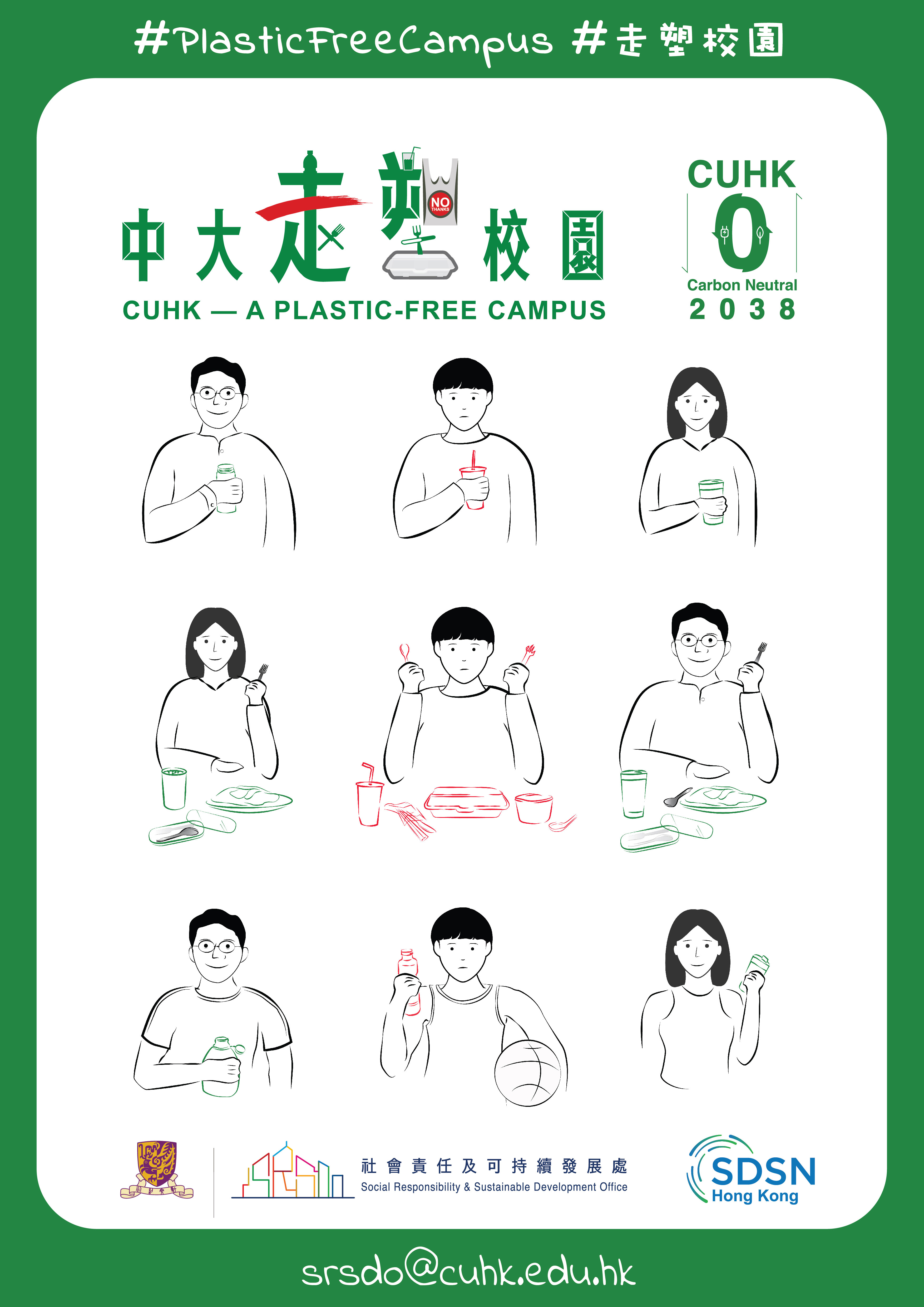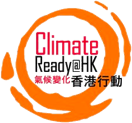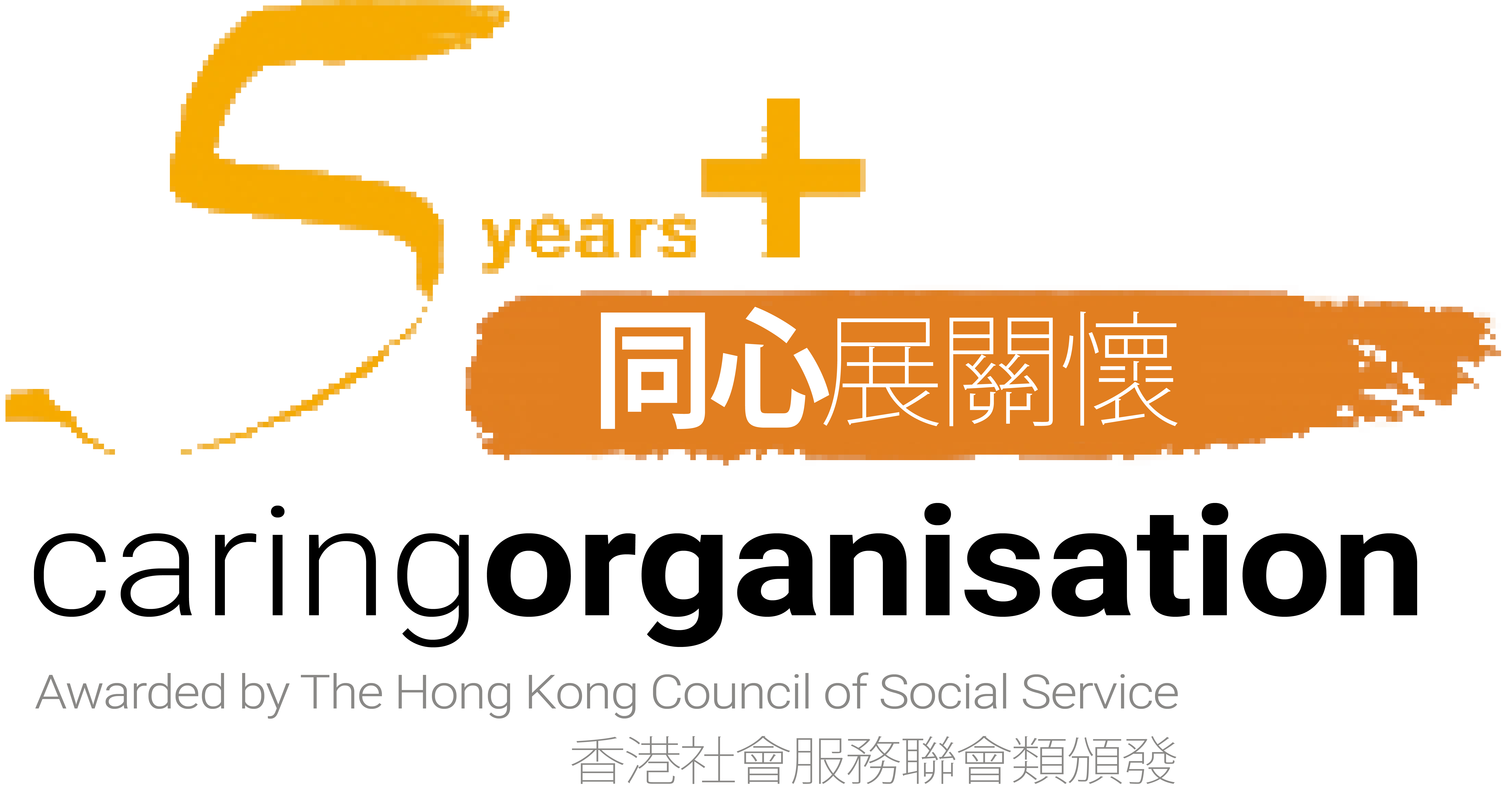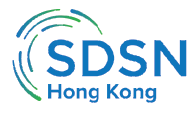Waste Reduction
Hong Kong faces serious waste disposal challenges, as its three strategic landfills are nearing their full capacities. CUHK takes a proactive approach to combating Hong Kong's landfill problem by wasting less, and reusing and recycling more. We are making great progress: from 2009/10 to 2021/22, CUHK's per-capita municipal solid waste disposal decreased by nearly 28% while the recycling quantities increased by 73%. Our aggressive achievements in waste reduction and recycling can be attributed to several factors:
|
Smart Recycling Systems on CUHK campus |
CUHK's Waste Management Policy, based on a 'waste management hierarchy', emphasizes the '6Rs' principle: Rethink, Refuse, Reduce, Reuse, Repair and Recycle. We accord top priority to waste reduction at source and encourage cyclical use of resources. Disposal is the last resort. Read more about CUHK's Waste Management its Policy and Guidelines. |
All faculties, colleges, departments and units within the University implement practices and procedures to minimize waste. Some examples for our key waste streams include:
Food waste separation cart of Lee Woo Sing College
|
To raise the environmental awareness of its students and staff, CUHK also launches various campaigns to engage stakeholders in its waste reduction mission. |
|
Plastic-free Campus Campaign Poster |
Plastic-free CampusThe 'Plastic-free Campus' campaign, launched in 2018, aims to encourage CUHK students, staff and caterers to work together to go 'plastic-free' and build a sustainable green campus by discontinuing the use or distribution of plastic disposables. The campaign focuses on four key plastic disposables: straws, bottled water containers of 1L or below, cutlery and Styrofoam containers. |
|
Water dispenser map in CUHK Mobile app |
Bring Your Own Campaign and Water Map ProjectLaunched in 2013 to promote a less wasteful culture, this campaign seeks to discourage the use of disposable items such as bags, lunchboxes and bottles. Key elements of the campaign include:
The 'CUHK Mobile' water map can be found under Campus Map > Facilities > Living Essentials > Water Dispensers. Alternatively, visit the CUHK Campus Map. |
|
Love Food, Hate Waste @CUHK Campaign Poster |
Love Food, Hate Waste @CUHKLaunched in 2013, this campaign aims to reduce campus food waste disposal to landfills by recycling into compost For details, please click here. |
|
GO! Green Award Ceremony |
Green Office Programme (GO!)Launched in 2012, this programme revolves around a 'GO! Checklist' of green action items in which waste reduction is one of the four key areas of action. 'GO!' encourages staff and students to take simple measures to make their workplaces greener, and provides a platform for sharing successful practices. |
|
Our ‘Yard for Environmental Sustainability (YES)’ in central campus allows us to collect reusable and recyclable materials for reuse, recycling and up-cycling. Staff and students can visit the YES to drop off or pick up items that can easily be reused from the cabinets. Materials will be recycled only when they cannot reasonably be reused. |
Reuse and RecyclingMore than 200 strategic locations have been established to collect recyclables. Recycling bins for paper, plastics and metals can be found throughout the campus and in most buildings. In addition, collection points have been established for other materials such as glass, printer cartridges, used clothes, banners, rechargeable batteries, polyfoam packaging, Tetra Pak and fluorescent lamps. Other facilities that encourage the recovery of waste materials include:
|
|
Waste Management Hierarchy |
|
CUHK's Waste Management Policy, based on a 'waste management hierarchy', emphasizes the '6Rs' principle: Rethink, Refuse, Reduce, Reuse, Repair and Recycle. We accord top priority to waste reduction at source and encourage cyclical use of resources. Disposal is the last resort. Read more about CUHK's Waste Management Policy and its Guidelines |






